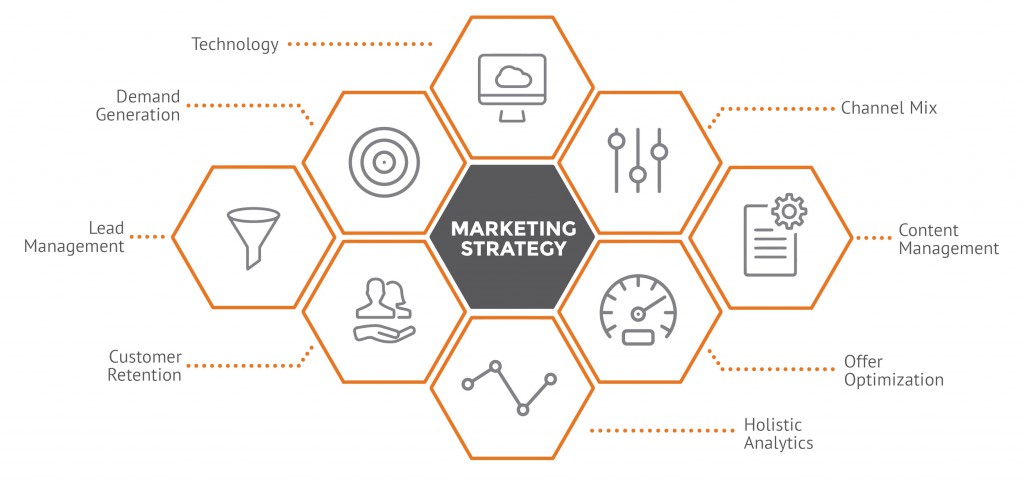


Marketing strategy is a long-term, forward-looking approach to planning with the fundamental goal of achieving a sustainable competitive advantage.
Strategic planning involves an analysis of the company's strategic initial situation prior to the formulation, evaluation and selection of market-oriented competitive position that contributes to the company's goals and marketing objectives.
Marketing Management involves mapping out the company's direction for the forthcoming planning period, whether that be three, five or ten years. It involves undertaking a 360-degree review of the firm and its operating environment with a view to identifying new business opportunities that the firm could potentially leverage for competitive advantage. Strategic planning may also reveal market threats that the firm may need to consider for long-term sustainability.

Strategic planning seeks to address three deceptively simple questions, specifically:
1. Where are we now? (Situation analysis)
2. What business should we be in? (Vision and mission)
3. How should we get there? (Strategies, plans, goals and objectives)
A fourth question may be added to the list, namely 'How do we know when we got there?'
Due to increasing need for accountability, many marketing organisations use a variety of marketing metrics to track strategic performance, allowing for corrective action to be taken as required. On the surface, strategic planning seeks to address three simple questions, however, the research and analysis involved in strategic planning is very sophisticated and requires a great deal of skill and judgement.
Strategic planning focuses on the 3C's, namely: Customer, Corporation and Competitors. A detailed analysis of each factor is key to the success of strategy formulation. The 'competitors' element refers to an analysis of the strengths of the business relative to close rivals, and a consideration of competitive threats that might impinge on the business' ability to move in certain directions. The 'customer' element refers to an analysis of any possible changes in customer preferences that potentially give rise to new business opportunities. The 'corporation' element refers to a detailed analysis of the company's internal capabilities and its readiness to leverage market-based opportunities or its vulnerability to external threats.
Strategic planners use a variety of research tools and analytical techniques, depending on the environment complexity and the firm's goals. The most commonly used tools and techniques include:
Whereas the vision and mission provide the framework, the "goals define targets within the mission, which, when achieved, should move the organization toward the performance of that mission." Goals are broad primary outcomes whereas, objectives are measurable steps taken to achieve a goal or strategy. In strategic planning, it is important for managers to translate the overall strategy into goals and objectives.
Developing competitive strategy requires significant judgement and is based on a deep understanding of the firm's current situation, its past history and its operating environment. No heuristics have yet been developed to assist strategists choose the optimal strategic direction.
Relationship between the marketing strategy and the marketing mix
Marketing strategy and marketing mix are related elements of a comprehensive marketing plan. While marketing strategy is aligned with setting the direction of a company or product/service line, the marketing mix is majorly tactical in nature and is employed to carry out the overall marketing strategy. The 4P's of the marketing mix (Price, Product, Place and Promotion) represent the tools that marketers can leverage while defining their marketing strategy to create a marketing plan.
Our experienced team build robust, transparent financial models covering all circumstances and across a wide range of sectors. Our approach is to start with a clear understanding of the situation and design a bespoke model using proven methodologies and techniques. The advantages of our models include creating outputs and usability that are designed specifically for the user, as well as providing the flexibility of assumptions to perform sensitivity analysis.
Our experts partner with clients on corporate planning, providing perspective not only on immediate value and impact, but on long-term implications. We work closely with management and other advisers to leverage and complement their knowledge and ensure maximum impact, and actively support implementation and skill building.

